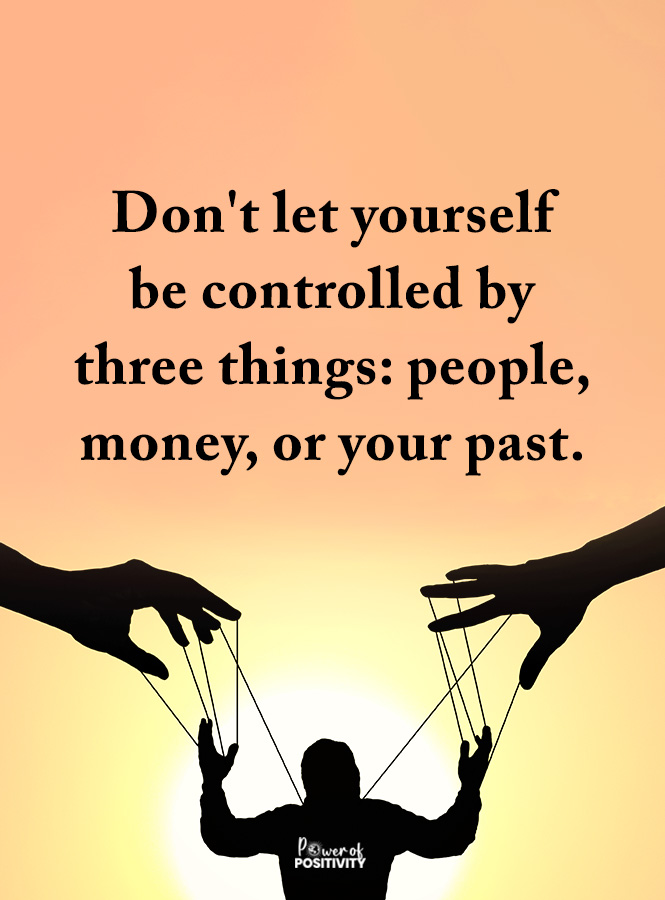What are the small, everyday things couples do that can quietly harm their relationship? Most people don’t notice them at first. Things seem fine, and life moves along—but over time, these unnoticed habits can grow into bigger problems.
Relationships often start with excitement and connection. Couples feel close, share their dreams, and genuinely enjoy each other’s company. But as the months or years pass, small patterns can creep in—patterns that, if left unchecked, create distance, frustration, or even heartbreak.
The truth is, it’s not always the big fights or dramatic moments that lead to a breakup. It’s often the small, repeated behaviors that go unnoticed. Counselors have shared key habits that many couples fall into, often without realizing it, which can slowly pull them apart.
The good news? These patterns can be spotted and changed. Let’s uncover the 10 things couples do that lead to breakups—and how to avoid them.
Why Relationships Break Down
Strong relationships are built on communication, trust, and effort. When these three elements are in place, couples feel close and supported. But when they begin to fade, even the strongest bonds can feel strained.
Over time, small habits or patterns can creep in and go unnoticed. A couple might stop prioritizing time together, avoid important conversations, or assume their partner knows how they feel without expressing it. These behaviors may seem minor, but they can create a growing sense of distance.
Often, these habits reflect deeper issues. Avoiding conflict might point to feelings of insecurity or a fear of confrontation. Neglecting affection might stem from stress, resentment, or simply losing touch with each other’s needs. Left unchecked, these small actions can slowly erode the connection that once felt so natural.
Relationships don’t break down overnight—it’s a gradual process that happens when partners stop paying attention to what keeps them connected. However, recognizing these patterns is the first step to turning things around. By understanding the things couples do that can harm their bond, it becomes easier to make changes that bring them closer again.
It’s not about being perfect; it’s about being aware and willing to grow together.
10 Things Couples Do That Lead to Breakups
Small habits can sneak into relationships over time, and while they might seem harmless at first, they often become the things couples do that slowly pull them apart. Let’s explore these behaviors and how to address them effectively.
1. Communication Becomes Transactional
Communication is the heart of every relationship. When couples stop having meaningful conversations, their interactions often shift to practical exchanges. Instead of talking about dreams, worries, or emotions, discussions revolve around tasks like, “Did you pay the bills?” or “What’s for dinner?” Over time, this creates emotional distance, leaving both partners feeling unheard and disconnected.
Imagine a couple who once shared everything now barely discussing their day. This shift can happen slowly and feels normal at first. However, without deeper conversations, misunderstandings build, and partners may feel like they’re living parallel lives instead of sharing one.
Schedule intentional moments to reconnect. For example, dedicate 15 minutes before bed to share highs and lows of the day. Use open-ended questions like, “How are you feeling about work?” These small efforts keep the emotional bond alive.
2. They Stop Showing Appreciation
It’s easy to overlook the little things your partner does when you’re used to them. Maybe they’ve made your coffee every morning for years or always take out the trash without being asked. When these efforts go unacknowledged, one partner may feel unappreciated, leading to resentment over time.
For example, forgetting to say “thank you” after your partner cooks dinner might seem minor, but when it happens repeatedly, it’s hurtful. People want to feel valued, and neglecting appreciation can make them feel invisible.
Make gratitude a daily habit. Even small acknowledgments like, “I noticed how you handled that stressful situation, and I’m proud of you,” can go a long way. A heartfelt “thank you” can change the tone of an entire day.
3. They Avoid Conflict Instead of Resolving It
No one enjoys arguing, but avoiding conflict entirely can be just as damaging as constant fighting. Ignoring problems doesn’t make them disappear; it simply delays them. Unaddressed issues often resurface as passive-aggressive comments, silent treatment, or even larger arguments down the road.
For example, if one partner feels neglected but avoids bringing it up, they might start making sarcastic remarks instead. These behaviors create a toxic cycle of tension that’s hard to break.
Approach conflicts with honesty and kindness. Use phrases like, “I feel hurt when…” instead of, “You always…” to avoid blame. Creating a safe space for open dialogue can help resolve issues before they escalate.
4. They Neglect Quality Time Together
Life’s responsibilities often take over, leaving little time for couples to connect. Between work, kids, and household tasks, it’s easy for date nights and shared activities to fall by the wayside. When couples stop prioritizing quality time, their relationship can start to feel like a business partnership.
Imagine a couple spending their evenings scrolling through their phones on opposite ends of the couch. They might be physically present but emotionally miles apart.
Make quality time a non-negotiable part of your routine. Plan weekly date nights, even if it’s just a walk in the park. Small gestures, like watching a favorite show together or cooking a meal, can reignite connection.
5. They Let Intimacy Fade
Physical and emotional intimacy are crucial for a healthy relationship. Over time, couples may stop holding hands, kissing goodbye, or making time for physical connection. This lack of affection can make a relationship feel cold and distant.
For example, a couple might replace playful flirting with routine interactions about chores or schedules. When intimacy fades, partners may feel more like roommates than romantic partners.
Start with small acts of affection, like a hug before leaving for work or a surprise compliment. Physical touch and emotional closeness can slowly rebuild intimacy and bring back the spark.
6. Comparison Becomes a Habit
Comparing your partner to others or their past self can be incredibly damaging. Statements like, “You used to be so romantic” or “Why can’t you be more like them?” create feelings of inadequacy and frustration.
These comparisons often stem from focusing on what’s lacking instead of appreciating what’s present. Over time, this habit can erode self-esteem and create unnecessary pressure.
Focus on the present. Instead of dwelling on past behaviors or envying other couples, work together to strengthen your bond. Celebrate each other’s unique qualities and acknowledge the growth you’ve both experienced.
7. They Blame Instead of Taking Accountability
When problems arise, blaming your partner can feel like an easy way to shift responsibility. However, constant blame creates a defensive environment where neither person feels safe to express themselves. This behavior can quickly erode trust and communication.
For example, arguing about money might turn into finger-pointing instead of finding a solution together. Over time, this dynamic makes it hard to work as a team.
Focus on shared accountability. Instead of saying, “This is your fault,” try, “How can we handle this better next time?” This approach encourages collaboration and reinforces the idea that you’re in this together.
8. They Prioritize External Distractions Over Each Other
Phones, work, and hobbies can easily take precedence over a relationship if you’re not careful. Couples who spend more time on their devices than with each other may find their connection fading.
For instance, a partner scrolling through social media during dinner might not realize how neglected the other person feels. These small moments of distraction add up, creating distance over time.
Set boundaries around technology and distractions. Have tech-free dinners or set aside an hour each evening to focus solely on each other. These moments of undivided attention can make a huge difference.
9. They Stop Supporting Each Other’s Growth
Healthy relationships thrive when both partners feel supported in their personal and professional goals. When one partner dismisses or ignores the other’s aspirations, it can lead to feelings of stagnation and frustration.
For example, if someone expresses interest in learning a new skill but their partner brushes it off, they may feel unsupported. Over time, this lack of encouragement can create a rift.
Show genuine interest in your partner’s goals. Celebrate their achievements, no matter how small, and find ways to actively support their growth. This reinforces the idea that you’re on the same team.
10. They Lose Respect for Each Other
Respect is the foundation of every strong relationship. When couples lose respect, it shows in their words and actions. Interrupting, speaking harshly, or dismissing opinions can slowly chip away at trust and connection.
Imagine a couple constantly interrupting or belittling each other during conversations. These small acts of disrespect can escalate, making it hard to maintain a healthy dynamic.
Practice kindness and active listening. Avoid hurtful comments, even in heated moments, and make an effort to treat your partner with the same respect you’d expect in return.
How to Address These Issues Before It’s Too Late
Relationships often face challenges, but small, intentional changes can make a big difference. Recognizing the things couples do that harm a relationship is the first step. Building healthier habits and reconnecting with your partner in meaningful ways can create positive changes.
Start small with actions that strengthen your bond. If communication feels strained, set aside ten minutes a day to have meaningful conversations without distractions. For couples who have neglected quality time, plan simple activities you both enjoy, like cooking together or taking a walk. These small efforts can rebuild trust and connection over time.
When issues run deeper, professional help can offer valuable tools. Counseling provides a safe space to address unresolved concerns and improve understanding. It focuses on creating a stronger partnership rather than assigning blame or fixing what’s “broken.”
Breakups don’t have to be the outcome when harmful patterns are recognized and addressed. Couples who make an effort to understand each other and work through challenges can rediscover the connection that brought them together in the first place. Effort, understanding, and patience are essential to keeping relationships strong.
Simple, intentional steps can turn things around and pave the way for a more supportive, lasting partnership. Healthy changes in the present can lead to a stronger and happier future together.
Final Thoughts on the 10 Things Couples Do That Lead to Breakups
Relationships aren’t easy, but they’re worth the effort. Small habits and patterns can either strengthen your bond or quietly pull you apart. Being aware of the things couples do that create distance is the first step to building a healthier and happier connection.
Every relationship requires consistent effort, open communication, and self-awareness. It’s about being honest with yourself and your partner about what’s working and what isn’t. Instead of letting harmful patterns take over, focus on small changes that bring you closer together. Even simple acts, like expressing gratitude or spending a little extra time together, can make a big difference.
Take a moment to reflect on your relationship. Are there areas where small improvements could bring more understanding, trust, or joy? Recognizing these opportunities isn’t ab.out placing blame but about growing together.
The good news is that change is possible. Relationships don’t have to fall apart over bad habits. When both people are willing to learn and grow, a stronger, more fulfilling partnership becomes possible. Whether it’s through small daily actions or seeking outside help, there’s always a path forward.
The effort you put in today can lead to a brighter, more connected future. Relationships thrive when both people are committed to making them work.















